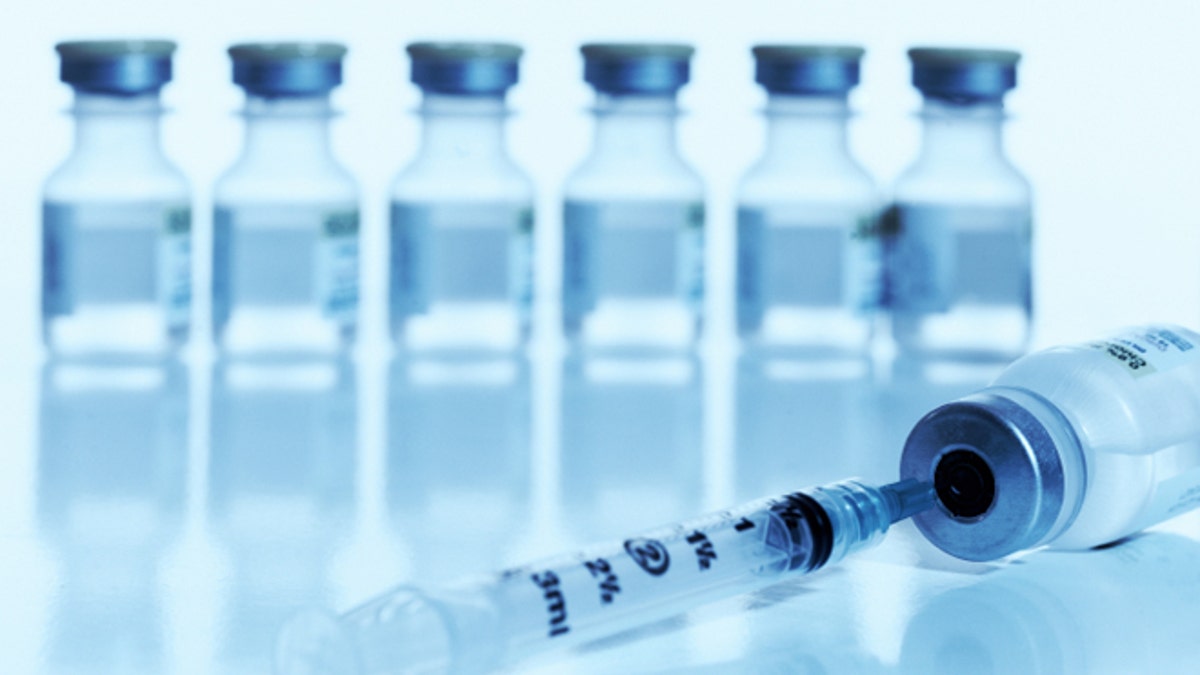
In a breakthrough clinical trial, Stanford University researchers have created a never-before-seen vaccine that utilizes modified DNA to shut down specific sections of the immune system. The vaccine has shown promising results in combatting Type 1 diabetes, potentially paving the way for brand new treatments to help individuals with the disorder.
Being hailed as a DNA ‘reverse’ vaccine, the new product acts antithetically to conventional vaccinations. Currently, most vaccines aim to boost a patient’s immune response to a virus by injecting a genetically modified version of the disease into the body. The Stanford vaccine does the opposite, intentionally turning off select portions of the immune response that are malfunctioning.
“In diseases like Type 1 diabetes, there are rogue immune cells that are attacking cells in the pancreas that are making insulin,” lead author Dr. Lawrence Steinman, professor of pediatrics and of neurology and neurologic sciences at Stanford, told FoxNews.com. “We have devised a methodology and…in this study coming out, we have shown some success in being able to do just that – rid the body of the cells that are killing insulin.”
Type 1 diabetes is a chronic autoimmune disease in which the pancreas produces little to no insulin, a hormone that helps convert sugar into energy. To manage the condition, patients must take multiple shots of insulin every day for the entirety of their lives. As many as 3 million Americans are living with Type 1 diabetes.
Most current treatment methods for autoimmune diseases involve shutting down large portions of the immune system. While this can be an effective strategy for more severe disorders, like multiple sclerosis, Steinman was looking to create a more tailored therapy for less threatening conditions.
“For this particular disease, you can live a full life with Type 1 diabetes, you just need to take insulin shots,” Steinman said. “These highly risky procedures in my opinion are to be avoided, so on the basis of my dislike of doing things that are too much, we wanted to do something that would be more finely tuned to this disease.”
To create their novel vaccine, the scientists modified a piece of DNA containing the INS gene, which helps to increase that amount of proinsulin protein in the body. Made in the beta cells of the pancreas, proinsulin is the precursor to insulin.
In patients with Type 1 diabetes, misdirected immune cells – known as CD8 cells – attack the beta cells containing proinsulin. When the DNA was inserted through the vaccine, it lead to an increase of proinsulin in the body, causing another class of immune cells to send an anti-inflammatory response to the CD8 cells – effectively shutting them down.
“We’re killing the killers instead of letting the killers kill the pancreas,” Steinman explained.
Steinman and his team tested the vaccine on 80 patients with Type 1 diabetes, giving them weekly intramuscular injections for 12 weeks. All the participants were receiving insulin replacement therapy injections before the clinical trial.
To determine the vaccine’s success, the researchers measured the participants’ C-peptide levels, a reliable marker for pancreatic beta cell function and a good proxy for insulin production. Their levels were evaluated at baseline, at five and 15 weeks, and six, nine, 12, 18 and 24 months after starting the regimen.
After starting the vaccinations, the patients’ C-peptide levels all improved compared to those who had taken a placebo. Furthermore, blood samples taken from the participants receiving the new vaccine showed that levels of proinsulin-targeting CD8 cells – but no other types of immune cells – were significantly depleted.
While the findings are quite encouraging, Steinman noted that the vaccine does not necessarily cure an individual of the disease - though it may significantly reduce the frequency of shots they have to take.
“Once you’ve had a series of vaccines, you may still need booster shots,” Steinman said. “It looks like, from the early data we have in humans, we’ll have to give this shot more frequently (than shots for things like Tetanus). But remember, people with Type 1 diabetes are taking shots of insulin all day long. The difference is going to be regarded favorably.”
In light of their study’s success, the Stanford researchers have formed a company called Tolerion Inc. – a nod to their goal of restoring the immune system’s tolerance. The have applied for a patent on their DNA ‘reverse’ vaccine – labeling it TOL-3021. They hope that this type of vaccine will eventually lead to the development of similar shots for more severe autoimmune diseases.
“Potentially, autoimmune diseases could benefit from this,” Steinman said. “The ones we’d be able to treat first are the ones where we know the identity of the molecule that immune system is mistakenly attacking…There are a lot of autoimmune diseases we have a lot of information about.”
Meanwhile, the researchers are reveling in their one-of-a-kind achievement.
“It’s a completely unconventional vaccine,” Steinman said, “and this is the first time that somebody has been able to get this to work in humans with this disease.”
The results were published June 26 in Science Translational Medicine.
